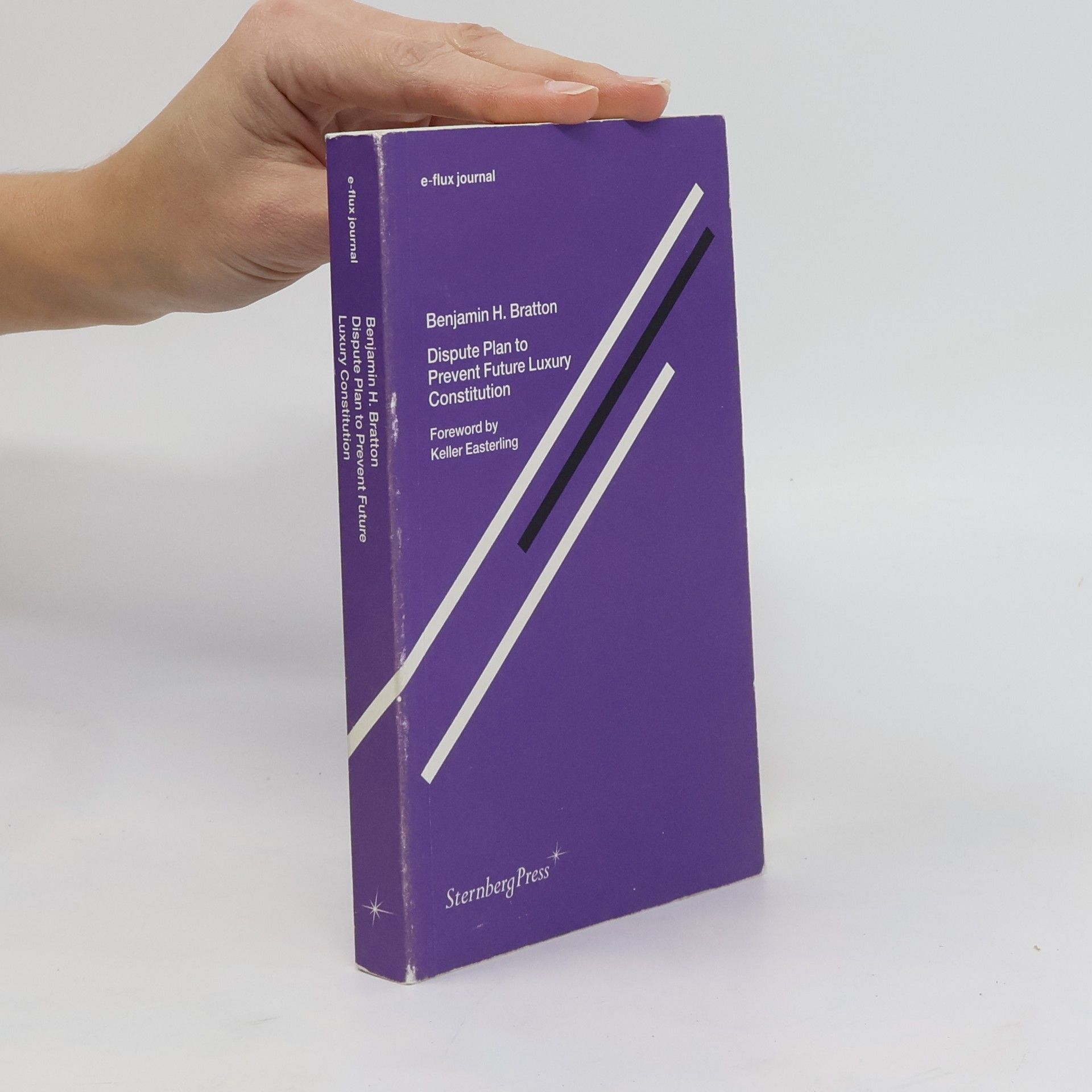Equal parts Borges, Burroughs, Baudrillard, and Black Ops, Dispute Plan to Prevent Future Luxury Constitution charts a treacherous landscape filled with paranoid master plans, failed schemes, and dubious histories. Benjamin H. Bratton's kaleidoscopic theory-fiction links the utopian fantasies of political violence with the equally utopian programs of security and control. Both rely on all manner of doubles, models, gimmicks, ruses, prototypes, and shock-and-awe campaigns to realize their propagandas of the deed, threat, and image. Blurring reality and delusion, they collaborate on a literally psychotic politics of architecture. The cast of characters in this ensemble drama of righteous desperation and tactical trickery shuttle between fact and speculation, action and script, flesh and symbol, death and philosophy: insect urbanists, seditious masquerades, epistolary ideologues, distant dissimulations, carnivorous installations, forgotten footage, branded revolts, imploding skyscrapers, sentimental memorials, ad-hoc bunkers, sacred hijackings, vampire safe-houses, suburban enclaves, big-time proposals, ambient security protocols, disputed borders-of-convenience, empty research campuses, and robotic surgery. In this mosaic we glimpse a future city built with designed violence and the violence of design. As one ratifies the other, the exception becomes the ruler
Benjamin H. Bratton Livres
Benjamin H. Bratton est un théoricien dont le travail couvre la philosophie, l'informatique et le design. Ses écrits explorent les systèmes complexes et les formes émergentes d'organisation dans notre monde technologiquement interconnecté. Bratton examine comment notre compréhension des structures sociales, politiques et économiques est remodelée par la révolution numérique. Son approche offre une perspective pénétrante sur l'avenir de l'urbanisme et de la gouvernance à l'ère de l'intelligence artificielle et de la connectivité mondiale.



COVID-19 exposed the pre-existing conditions of the current global crisis. Many Western states failed to protect their populations, while others were able to suppress the virus only with sweeping social restrictions. In contrast, many Asian countries were able to make much more precise interventions. Everywhere, lockdown transformed everyday life, introducing an epidemiological view of society based on sensing, modeling, and filtering. What lessons are to be learned?The Revenge of the Real envisions a new positive biopolitics that recognizes that governance is literally a matter of life and death. We are grappling with multiple interconnected dilemmas—climate change, pandemics, the tensions between the individual and society—all of which have to be addressed on a planetary scale. Even when separated, we are still enmeshed. Can the world govern itself differently? What models and philosophies are needed? Bratton argues that instead of thinking of biotechnologies as something imposed on society, we must see them as essential to a politics of infrastructure, knowledge, and direct intervention. In this way, we can build a society based on a new rationality of inclusion, care, and prevention.
Die Realität schlägt zurück
Politik für eine postpandemische Welt
Covid-19 hat die Krisenhaftigkeit unserer politischen Systeme schlagartig zum Vorschein gebracht. Während viele Staaten am Auftrag, ihre Bevölkerungen zu schützen, gescheitert sind, wussten sich andere nur durch pauschale Beschränkungen zu helfen. Die Zeiten des Lockdowns haben unser Verständnis des gesellschaftlichen Zusammenlebens verändert. Doch welche Lehren ziehen wir daraus? Benjamin Brattons spektakulärer Essay zieht die politischen Konsequenzen aus der Erfahrung der Pandemie und erkennt gesellschaftliche Handlungsfähigkeit als Existenzfrage. Denn die Krisen unserer Gegenwart erfordern umfassende Eingriffe in globalem Ausmaß und können nur mithilfe neuer Technologien und Formen der Steuerung und Koordination gelöst werden. Anstatt Biotechnologie, Geoengineering und globale Softwaresysteme ausschließlich als Bedrohung zu empfinden, ist es an der Zeit, sie als gesellschaftliche Ressourcen in Anspruch zu nehmen. Die Realität schlägt zurück ist ein Weckruf gegen die politische Einfallslosigkeit und ein Plädoyer für ein Denken, das der neuen Normalität gewachsen ist.